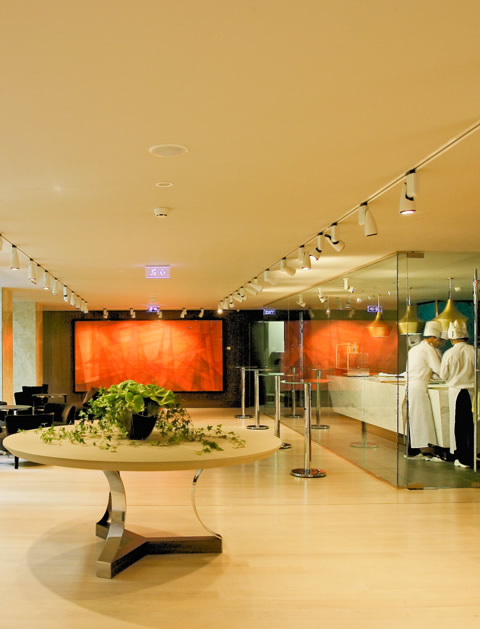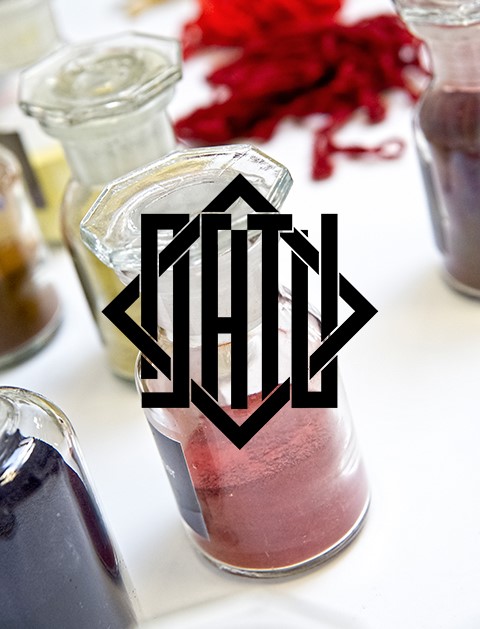CORPORATE SOCIAL RESPONSIBILITY
TURKISH CULTURAL FOUNDATION
The Turkish Cultural Foundation (TCF) was established in 2000 with the mission to support the preservation and promotion of Turkish culture and heritage worldwide through original programs and cooperation with like minded organizations. The Foundation is a U.S. tax-exempt public charitable organization supported entirely by private donations, with offices in Boston, Washington, D.C. and Istanbul, Turkey.The Foundation's main mission is to build cultural bridges between the United States and Turkey, increase knowledge on Turkey's cultural heritage and its contributions to world culture and humanity.
In support of promoting Turkish art and culture in the United States, TCF underwrites major cultural and arts events related to Turkish culture, including festivals, exhibitions, workshops and lectures. To build people-to-people bridges between Turkey and the world, TCF organizes educational programs, teacher study tours, cultural and culinary tours to Turkey and connects culture professionals and artists worldwide through the TCF Fellowship Programs.
TCF maintains the most visited websites on Turkish culture: The TCF Turkish Culture Portal, Turkish Music Portal and Turkish Cuisine Portal. The Turkish Culture Portal also features the TCF Who's Who in Turkish Culture and Art, as well as the Image Archive on Turkish Art. TCF further contributes to public education about Turkish culture through its year-round lecture programs, which are also made available for online viewing on the TCF Video Gallery.
TCF and Armaggan have partnered in the establishment of the Cultural Heritage Preservation and Natural Dyes Laboratory - DATU and work together to help preserve Turkey's rich textile heritage and to recreate its splendor. The Armaggan Nurosomaniye store is also host to the TCF Culinary Arts Center - YESAM, which promotes and preserves Turkey's culinary heritage.
DATU - CULTURAL HERITAGE AND NATURAL DYE LAB
DATU-Cultural Heritage Preservation and Natural Dyes Laboratory has four units, Research &Development Laboratory, Ottoman Fabrics, Natural Dyeing & Printing and Dye House.Research and Development Lab
In the Research and Development Lab, replicas that have all the characteristics of Seljuk and Ottoman works are produced and analysis and technical support is provided for the preservation and restoration of the Turkish artworks. Cultural Heritage and Natural Dye Lab aims to introduce the natural dye sources of Turkey, that has the richest plant flora in the world, to revive natural dyeing and to create new employment opportunities in the rural areas for this field.
DATU-Cultural Heritage and Natural Dye Lab, has the widest collection in the World in terms of natural dye sources. The collection involves; dye plants, insects, crustaceans and natural organic laquered pigments. It is estimated that around 300 to 400 types of dye plants are used worldwide. It is known that the number of dye plants in Turkey is around 250. Three of the six dye insects are raised in Turkey. The crustaceans used for dyeing are located in Marmara Sea, Aegean Sea, Mediterrenean Sea and Black Sea.
Thirty different animal and vegetal pigments are produced in the lab. These pigments could also be used as a natural organic ink in such fields as marbling, ornamentation and miniature craft, all of which have a very significant place in Turkish arts and culture. Natural organic pigments were used in paintings, icons and murals in the past. They could also be used fort he renovations and reproductions in such fields.
Reproduction of Ottoman Fabrics
The 16th century Ottoman Palace fabrics, some of the most magnificent fabrics of Turkey’s and world’s leading museums, are reproduced by ARMAGGAN applying the exact same techniques, designs and dyes as those used in the 16th century. Fabrics also features herbal natural antibacterial and natural antimicrobial properties as in the history. Reproduction of Ottoman silk brocades are woven with the original mechanic Jacquard looms.
Natural Printing
Printing inks, which have an important place in textile sector is produced in DATU-Cultural Heritage and Natural Dyes Laboratory. Using special methods to bring together printing and dying technology, the laboratory used natural organic dyestuffs to support the production of new non-toxic, non-carcinogenic textile products with natural antibacterial and antimicrobial properties.
Dye House
Fabrics and fibers are naturally being dyed in dye house, as well as obtaining their antibacterial and antimicrobial properties. All dye plants are annual and biennial with an eco-friendly approach, perennial plants aren’t used not to give harm to the environment.
Non-Destructive Analysis and Microanalysis
Dyestuff and color analyses are performed on archaeologic and historic artifacts, and used in the restoration and preservation of these objects. Through these analysis methods, the laboratory give support to museums in dating and restoring these artifacts. Microanalysis is used to diagnose the dyestuff and the natural organic dye sources by getting a one - three milligram sample from the piece. In addition to dating the artifacts, the analyses help in determining the best method for their restoration and preservation.
THE CULINARY ART CENTER - YESAM
The Culinary Arts Center (YESAM) was established in 2011 as a project by the Turkish Cultural Foundation (TCF). The mission of YESAM is to enhance knowledge and help preserve Turkey’s culinary culture, past and present, through research and education. Accordingly, YESAM works to record foods and food-related traditions in Turkey and adjacent regions with which Turkey shares cultural and historical ties, recreate traditional dishes and develop educational models to pass Turkey’s culinary heritage on to future generations, as well as promote it to the attention of world gastronomy.Some of the activities of YESAM are; a year-round lecture series on Turkish cuisine with a view to enhance awareness on the subject in Turkey. These lecture series are open to the public, and feature prominent Turkish culinary experts. TCF-YESAM also organizes culinary tours with a view to promote Turkish culinary culture while supporting local production and sustainability.



